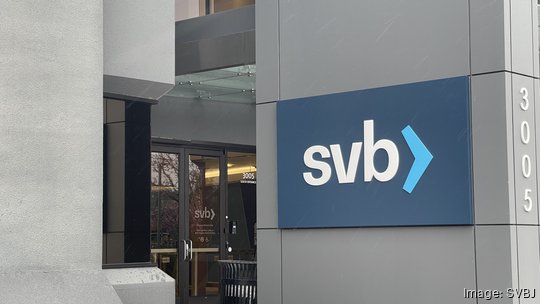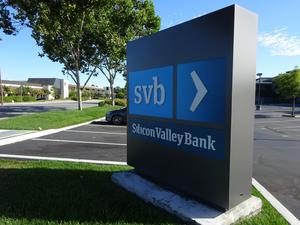
The relief is palpable when talking to David Kirkpatrick, managing director of startup investor SJF Ventures in Durham, shortly after the federal government on Sunday said it would protect depositors at Silicon Valley Bank, which was seized by regulators Friday after the bank's sudden collapse.
Ten of SJF’s 40 portfolio companies had exposure to Silicon Valley Bank (SVB). Between them, that’s hundreds of employees banking with SVB. Kirkpatrick spent the weekend trying to calm startup founders and also lobbying for the government to protect depositors.
Speaking Sunday after regulators approved plans to backstop both depositors and financial institutions associated with SVB, Kirkpatrick called the move critical.
“If they had not done this, think the risk to smaller regional banks,” he said, pointing to other venture lenders, such as PacWest (Nasdaq: PACW), which years ago bought out Square 1, a venture bank in Durham. If entrepreneurs don’t trust local banks, they’ll go to big, national names instead – such as JPMorgan Chase (NYSE: JPM), reported to have already scored a major boost from taking on SVB clients.
Kirkpatrick hopes regulators are offsetting a domino effect with other banks. But on Sunday, regulators shut down Signature Bank (SBNY), which, like SVB, has a local presence in the Triangle.
As with SVB, the Federal Reserve, the Department of the Treasury and the FDCI have committed to guarantee deposit accounts at Signature. But Treasury Secretary Janet Yellen ruled out a federal bail out Sunday, saying that while she was “concerned” about depositor impact, “we’re not going to do that again" in reference to the financial crisis of 2008.
Widespread impact
Kirkpatrick said it’s important that investors, entrepreneurs and people in the finance industry know that while “Silicon Valley” is in the bank’s name, the institution stretches across the nation's startup sector. “It was a big bank,” he said – SVB had $200 billion in assets. “They were the leading venture lender … it was a big shock for us.”
While it may be easy to question those who held more than the FDIC-insured cap of $250,000 with the bank, Kirkpatrick cautions it’s complicated. Not only does SVB require deposit accounts when it extends credit lines and loans – meaning pulling out could put an entire loan in default – but entrepreneurs are trying to finance innovation, and that requires capital.
“If an entrepreneurial company raises $3 million, no one really thinks, do I have to split that up into 18 different accounts?” he said.
In some cases, SVB held a company's exclusive banking rights, prohibiting them from diversifying.
The rapid collapse of the bank was a panic-inducing situation. In the Triangle, several entrepreneurs stepped up to help.
The Council for Entrepreneurial Development sent out a memo Sunday afternoon telling founders impacted by the situation to try to stay calm – admittedly “easier said than done.” CED said it works with multiple banks and was assembling some options – and that startups with concerns should reach out.
The impact appeared widespread.
Multiple local firms had relationships with SVB, which was also a lender in the federal Paycheck Protection Program working with local companies such as Get Spiffy, Humacyte (Nasdaq: HUMA) and Pryon on Covid-19 relief loans during the pandemic.
Even companies without direct exposure found themselves reassuring vendors, investors and employees over the weekend. Spiffy, for example, stopped banking with SVB before the current situation – yet CEO Scot Wingo sent out a note assuring that the company had no exposure.
“Impacted CEO/founders are in our thoughts and we’re doing what we can here locally to help out [our] fellow venture-backed companies,” Wingo wrote.
Melissa Phillip, CEO of WorkDove, put out a similar notice on LInkedIn reiterating that the company doesn’t bank with SVB.
“For those founders out there wrestling with what comes next, know we see you, support you, are praying for you,” her post said.
